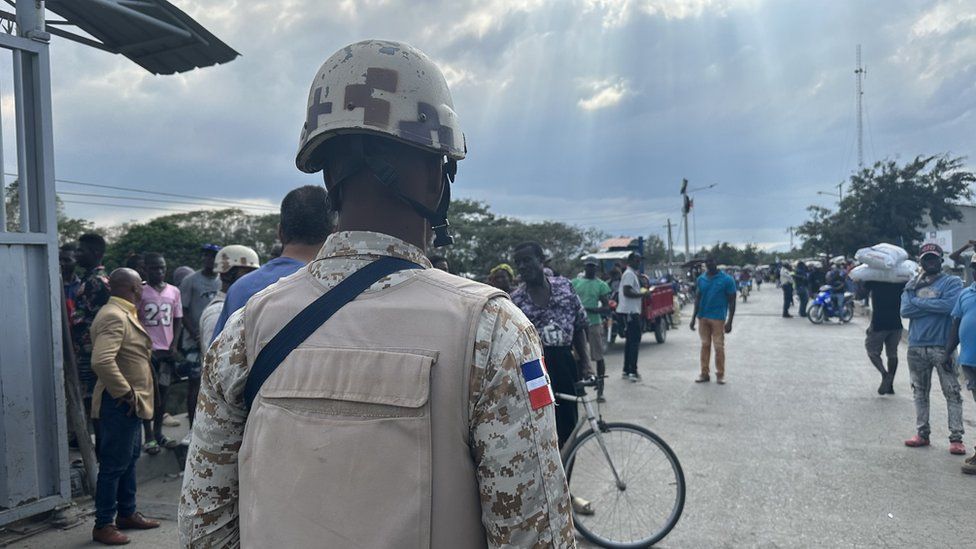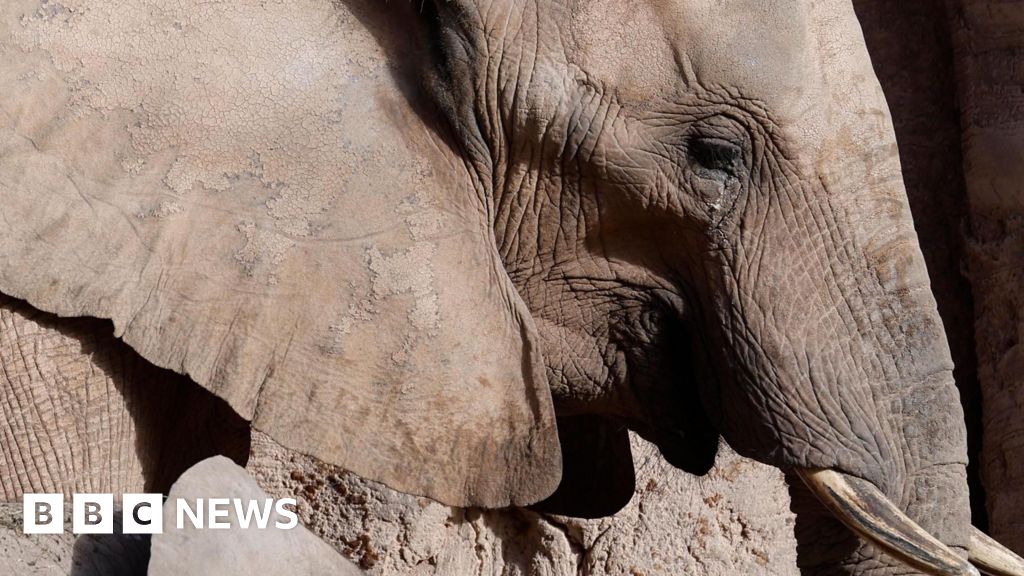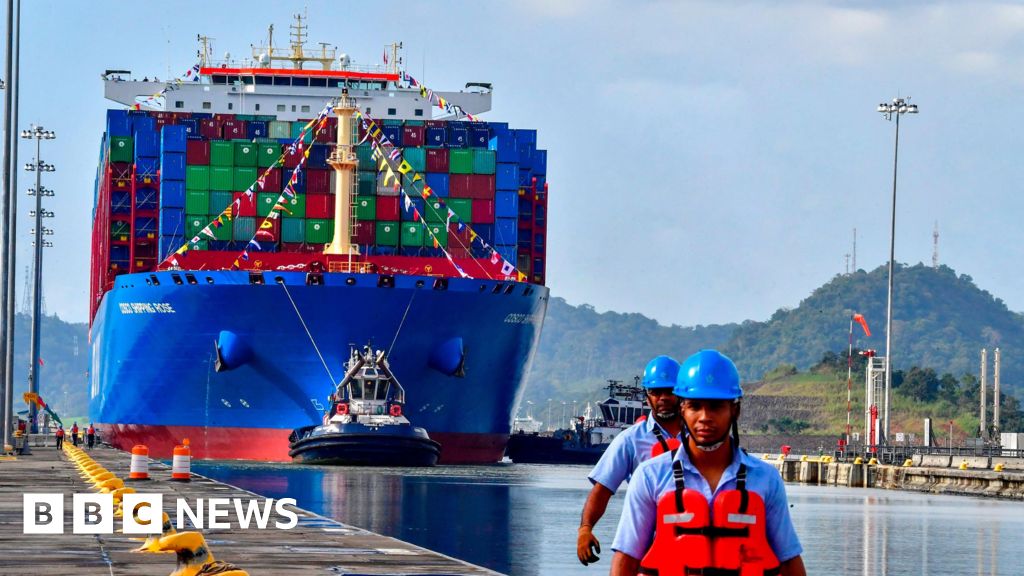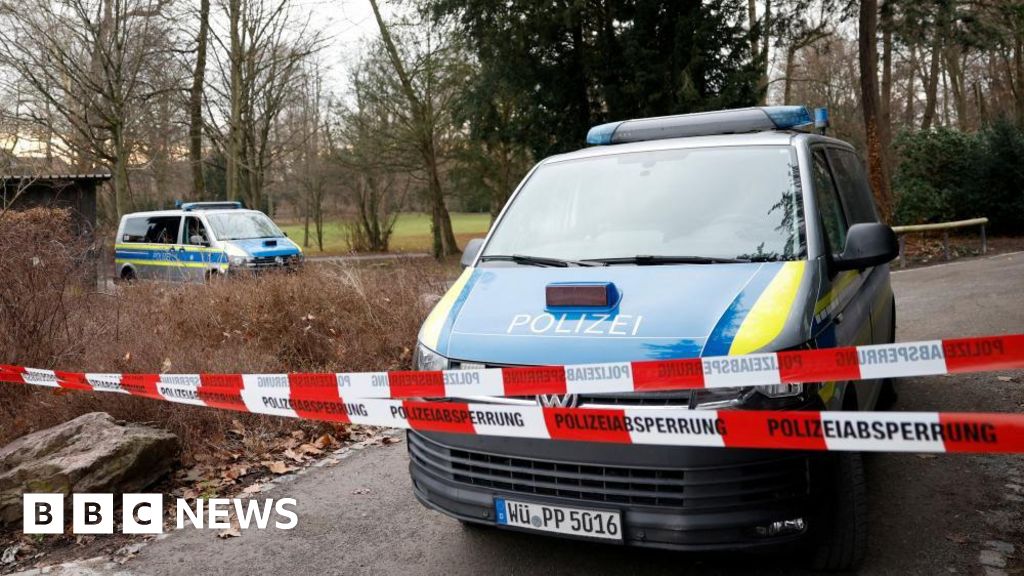ARTICLE AD BOX

Haitians crossing back into their home country face an uncertain future - with a humanitarian catastrophe unfolding in the capital
By Will Grant
BBC News, on the Haiti-Dominican Republic border
At the Dajabón border crossing between the Dominican Republic and Haiti, a constant stream of trucks pulls up carrying undocumented Haitian migrants, who are being deported back to Haiti.
They are being sent to a nation in the grip of its most acute humanitarian crisis since the devastating earthquake in 2010, which killed hundreds of thousands.
Haiti's already precarious situation has quickly deteriorated over the past weeks as gangs have launched coordinated attacks on key facilities to force the resignation of the country's prime minister.
In total, more than 350,000 people have been internally displaced in Haiti - more than 15,000 of them in the last fortnight.
Yet here at the border crossing, the Dominican authorities have been sending back hundreds of undocumented Haitians every day.
Lorries with the words "migration control" emblazoned on their sides take Haitians back to the border
Dominican soldiers unlock the wrought-iron doors, order out dozens, and send them across the Massacre River into Haiti.
Some of the immigrants are furious, shouting indignantly in Spanish and Creole. Others are resigned, holding their children or a few possessions in their arms.
"I'd been in the Dominican Republic for three years," yelled construction worker, Michael Petiton, "they came into my house and took me from my home."
Now he is back in Haiti with only the clothes on his back and a few tools he managed to salvage in a rucksack. He worked hard, he insisted, doing a job most Dominicans did not want.
The message the Dominican Republic appears to be sending is: "No matter how bad things become at home, Haitians should not seek refuge on Dominican territory."
Last month, the country's President Luis Abinader demanded in an appearance before the United Nations Security Council in New York that the international community step up aid to Haiti and deploy a multinational force there.
He urged the UN to "fight together to save Haiti", but warned that if no help was forthcoming, his country would "fight alone to protect the Dominican Republic".
Questioned last week about the possibility of receiving Haitians fleeing unrest, Mr Abinader categorically ruled out accepting refugee camps on Dominican soil.
Those being returned to Haiti face real uncertainty.
"The current situation in the capital city, Port-au-Prince, is a humanitarian catastrophe for its three million inhabitants, and more specifically for women and girls," said the UN Population Fund (UNFPA)'s Haiti representative, Philippe Serge Degernier.
The widespread gang violence has forced many hospitals to close and others are not functioning as fuel and essential medical supplies are held up by the criminal groups.
Mr Degernier told the BBC that just one of the 15 hospitals his organisation supports was currently working.
"They're overwhelmed," he said. "We have estimated that about 3,000 women will not have access to maternity in order to give birth unless the situation calms down soon."
The hope was that some degree of calm might return after the beleaguered prime minister, Ariel Henry, finally acquiesced to the diplomatic pressure and the bloodshed, and resigned.
Image source, Reuters
Image caption,Haiti's Prime Minister Ariel Henry agreed to resign following weeks of mounting pressure and increasing violence in the impoverished country
While the violence has abated a little since the announcement on Monday, few have any doubt that it could flare up again at any moment.
Haiti's crisis runs far deeper than the resignation of one man. Earlier this week, the US State Department had said that it expected a transitional council to be in place within two days.
There is still little sign of one.
Rather, there is a power vacuum where the Haitian government is supposed to be, and deep divisions over who would sit on an interim administration.
So while most people in the capital, Port-au-Prince, were glad to see the back of their unelected prime minister, many lament the lack of a clear successor.
"Henry's resignation is a good thing, he wasn't doing anything good for the country," Ms Benjamin, a stallholder, told the AFP news agency. "Now we must unite to pull Haiti out of this impasse."
"Ariel Henry was the biggest obstacle we had. He had to go," added another resident, Emmanuel. "But we should have had a proper plan in place to replace him."
The country's main gang leader, Jimmy "Barbecue" Chérizier, has reportedly criticised the deal setting up the transitional administration and there is some speculation that the gangs will want an amnesty for the violence they have carried out.
Image source, Getty Images
Image caption,Gang violence has surged in the Haitian capital, Port-au-Prince
Jimmy Chérizier may well have designs on becoming Haiti's leader himself, as do a number of others with criminal pasts and questionable credentials.
For the UN Population Fund's representative in Haiti, though, one horrific aspect of the violence has been largely overlooked in the current crisis: the gangs are increasingly using rape and sexual abuse as weapons of war.
They often target women living in areas held by their rivals or even in their own territory as a way to spread fear.
"Last year, more than 5,000 women were raped or victims of sexual abuse, and that is unfortunately a very tiny part of the iceberg," explains Mr Degernier.
Most of the time women dare not go to the hospital to be treated, he says, for fear of retaliation, which "can sometimes even include the woman's murder".
That is the country which awaits the deported Haitian immigrants. The future has rarely looked so uncertain or dangerous.

 10 months ago
53
10 months ago
53








 English (US) ·
English (US) ·